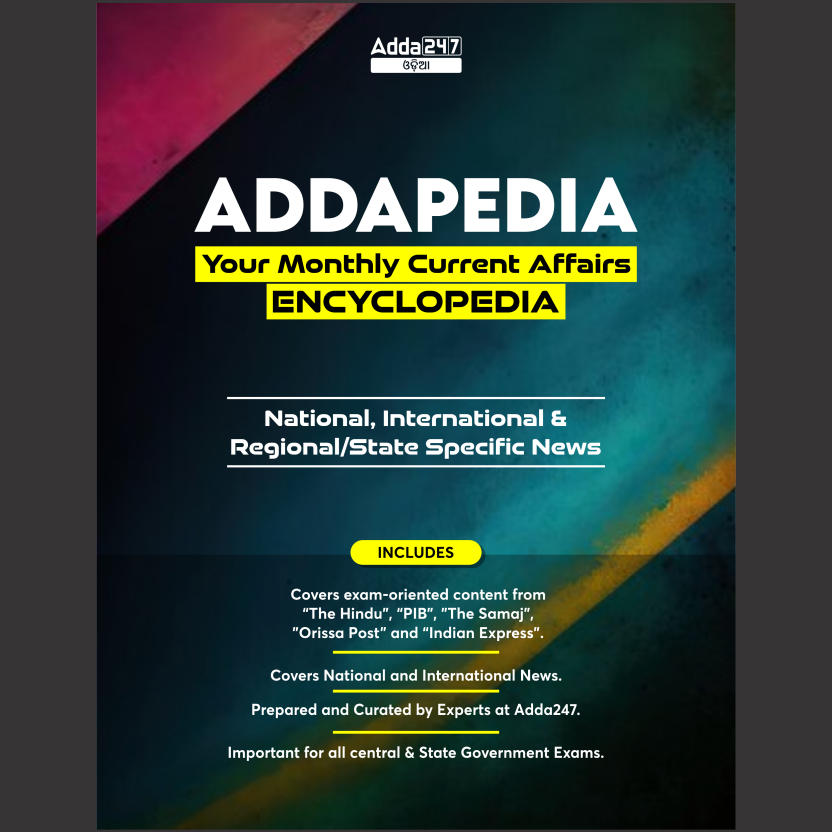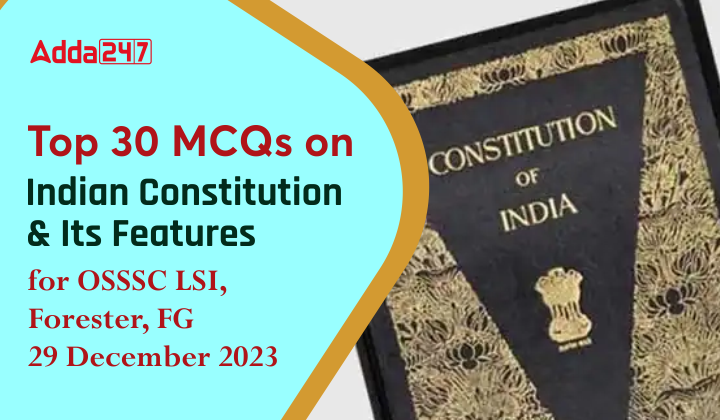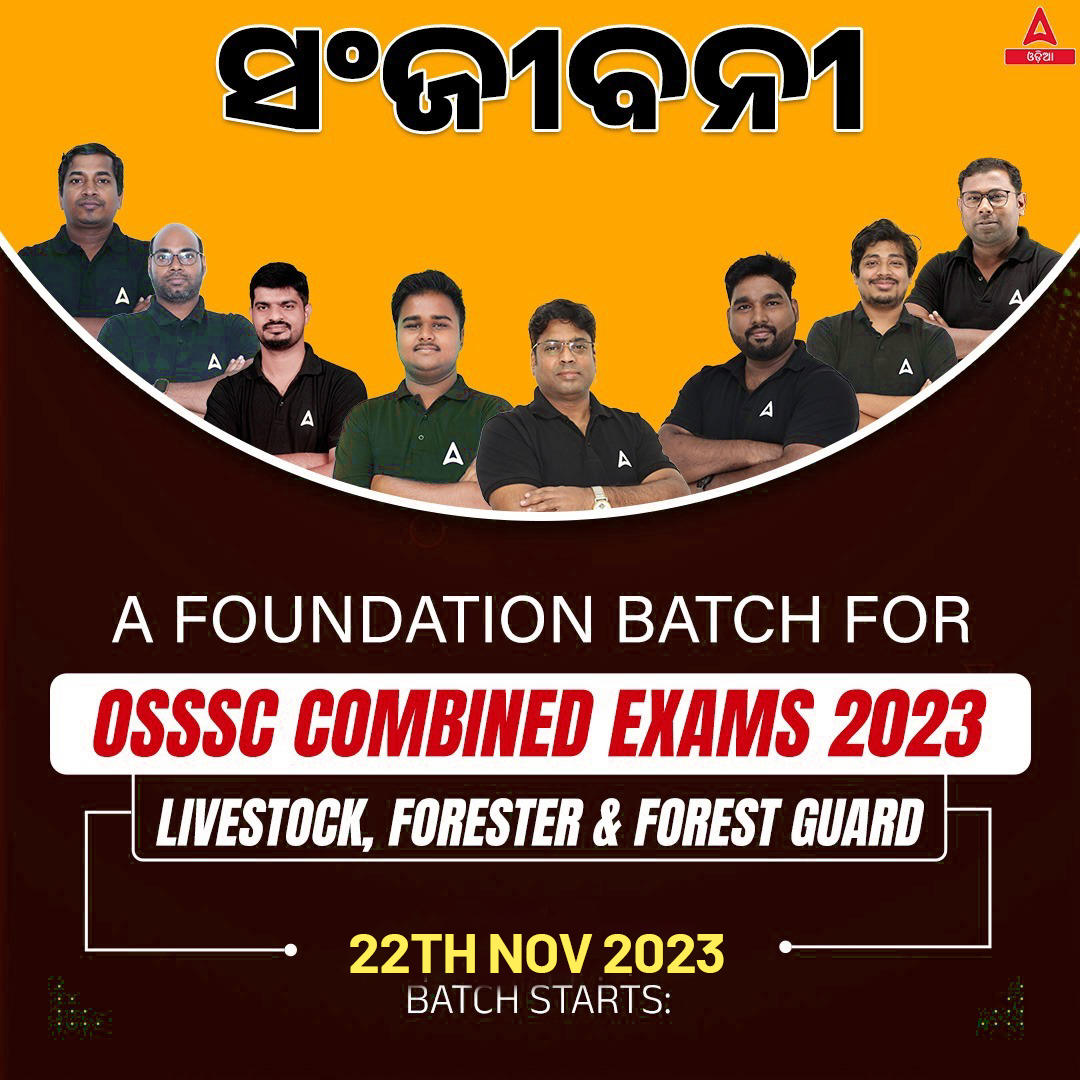The Indian Constitution is the bedrock of the world’s largest democracy, providing the framework for governance and safeguarding the rights of its citizens. Aspirants preparing for exams like OSSSC LSI, Forester, and FG need a comprehensive understanding of the Constitution and its features. In this article, we present a curated set of 30 Multiple Choice Questions (MCQs) to help you assess and enhance your knowledge about the Indian Constitution.
Top 30 MCQs on Indian Constitution and its features for OSSSC LSI, Forester, FG
Mastering the intricacies of the Indian Constitution is crucial for success in exams like OSSSC LSI, Forester, and FG. These 30 MCQs cover a range of topics, allowing aspirants to evaluate their knowledge and focus on areas that require further attention. Keep honing your understanding of the Constitution to excel in your preparations and future endeavors.
- Which part of the Indian Constitution deals with the Fundamental Rights?
a) Part II
b) Part III
c) Part IV
d) Part V
Answer: b) Part III - Who was the chairman of the drafting committee of the Indian Constitution?
a) Jawaharlal Nehru
b) Sardar Patel
c) B.R. Ambedkar
d) Rajendra Prasad
Answer: c) B.R. Ambedkar - The Preamble of the Indian Constitution declares India to be a:
a) Republic
b) Monarchy
c) Oligarchy
d) Theocracy
Answer: a) Republic - Which amendment added the Right to Education as a fundamental right?
a) 86th Amendment
b) 42nd Amendment
c) 73rd Amendment
d) 97th Amendment
Answer: a) 86th Amendment - The concept of judicial review in the Indian Constitution is borrowed from which country?
a) USA
b) UK
c) Canada
d) Australia
Answer: a) USA - Who can remove the President of India from office?
a) Lok Sabha
b) Rajya Sabha
c) Supreme Court
d) Parliament
Answer: a) Lok Sabha - What is the term of office for a member of the Rajya Sabha?
a) 4 years
b) 5 years
c) 6 years
d) 2 years
Answer: b) 5 years - The Directive Principles of State Policy are enshrined in which part of the Constitution?
a) Part III
b) Part IV
c) Part V
d) Part VI
Answer: b) Part IV - Who appoints the Chief Justice of India?
a) President
b) Prime Minister
c) Chief Justice of India himself
d) Supreme Court Judges
Answer: a) President - Which article of the Constitution deals with the impeachment of the President of India?
a) Article 60
b) Article 61
c) Article 62
d) Article 63
Answer: b) Article 61
- The concept of ‘Equality before the law’ is enshrined in which article of the Constitution?
a) Article 14
b) Article 15
c) Article 16
d) Article 17
Answer: a) Article 14 - What is the retirement age for judges of the Supreme Court?
a) 60 years
b) 62 years
c) 65 years
d) 70 years
Answer: c) 65 years - Which schedule of the Indian Constitution contains the list of official languages of India?
a) First Schedule
b) Second Schedule
c) Eighth Schedule
d) Tenth Schedule
Answer: c) Eighth Schedule - Who has the power to dissolve the Lok Sabha?
a) President
b) Prime Minister
c) Lok Sabha Speaker
d) Chief Justice of India
Answer: a) President - The concept of ‘One person, one vote’ is based on the principle of:
a) Equality
b) Liberty
c) Fraternity
d) Justice
Answer: a) Equality - Which article of the Constitution deals with the election of the President of India?
a) Article 54
b) Article 55
c) Article 56
d) Article 57
Answer: b) Article 55 - The Governor of a state is appointed by:
a) President
b) Chief Minister
c) Prime Minister
d) Chief Justice of India
Answer: a) President - What is the maximum strength of the Lok Sabha?
a) 500
b) 545
c) 552
d) 560
Answer: c) 552 - Which article of the Constitution guarantees the right to freedom of speech and expression?
a) Article 19
b) Article 20
c) Article 21
d) Article 22
Answer: a) Article 19 - The President of India can be impeached for:
a) Violation of the Constitution
b) Corruption
c) Criminal misconduct
d) All of the above
Answer: d) All of the above
- Who is known as the ‘Father of the Indian Constitution’?
a) Jawaharlal Nehru
b) Sardar Patel
c) B.R. Ambedkar
d) Mahatma Gandhi
Answer: c) B.R. Ambedkar - Which article of the Constitution abolishes untouchability?
a) Article 15
b) Article 16
c) Article 17
d) Article 18
Answer: c) Article 17 - Who can initiate the process of impeachment of the President of India?
a) Lok Sabha
b) Rajya Sabha
c) Either House of Parliament
d) President himself
Answer: c) Either House of Parliament - Which committee is responsible for scrutinizing the annual budget in India?
a) Public Accounts Committee
b) Estimates Committee
c) Finance Committee
d) Planning Committee
Answer: b) Estimates Committee - The term ‘Secular’ was added to the Preamble by which amendment?
a) 42nd Amendment
b) 44th Amendment
c) 52nd Amendment
d) 56th Amendment
Answer: a) 42nd Amendment - In the case of a deadlock between the Lok Sabha and Rajya Sabha, where does the joint sitting take place?
a) Rashtrapati Bhavan
b) Parliament House
c) Supreme Court
d) Central Hall of Parliament
Answer: d) Central Hall of Parliament - Who is the ex-officio Chairman of the Rajya Sabha?
a) Vice President
b) Prime Minister
c) President
d) Speaker of the Lok Sabha
Answer: a) Vice President - The 73rd Amendment is related to:
a) Panchayati Raj
b) Municipalities
c) Reservation in jobs
d) Anti-defection law
Answer: a) Panchayati Raj - Which part of the Constitution deals with the Interstate Relations?
a) Part XI
b) Part XII
c) Part XIII
d) Part XIV
Answer: a) Part XI - What is the term of office for the Vice President of India?
a) 4 years
b) 5 years
c) 6 years
d) 2 years
Answer: b) 5 years
| Official Links | |
| Adda247 Odia website | Click Here |
| Download ADDA247 Odia APP | Click Here |









